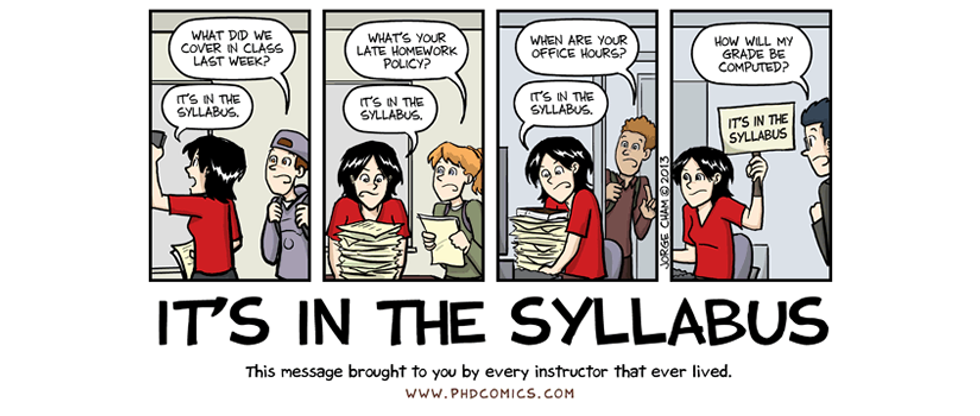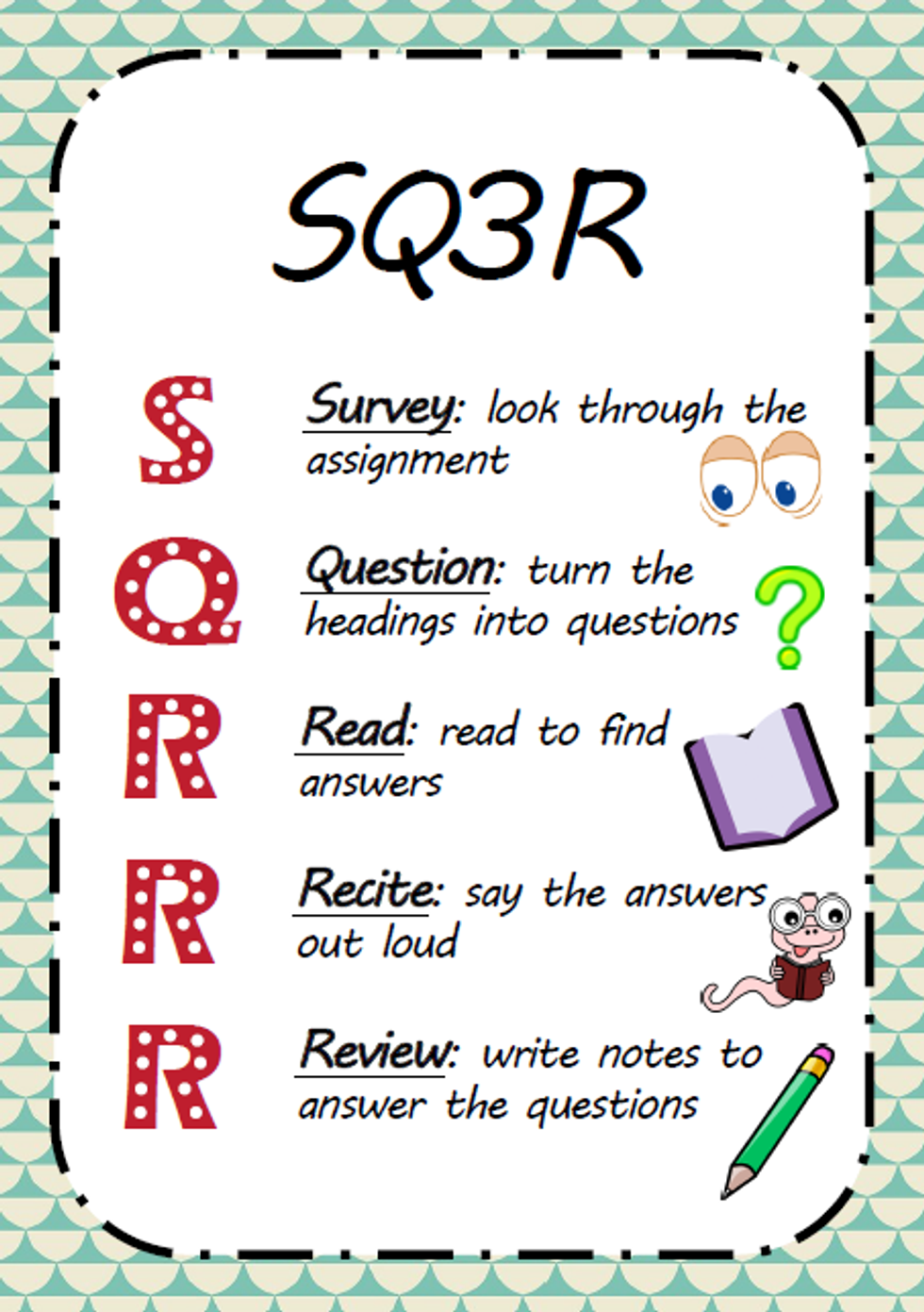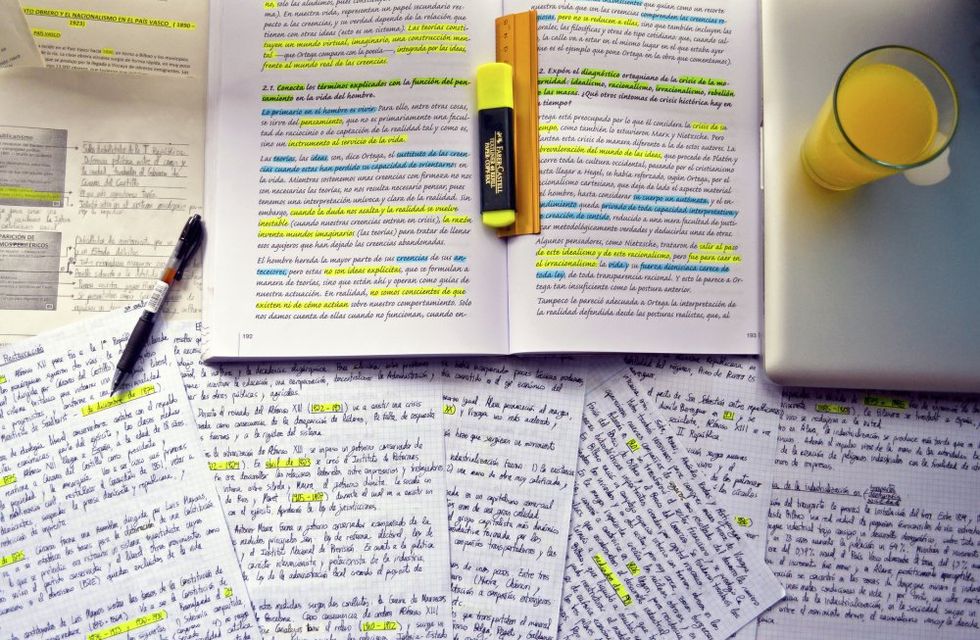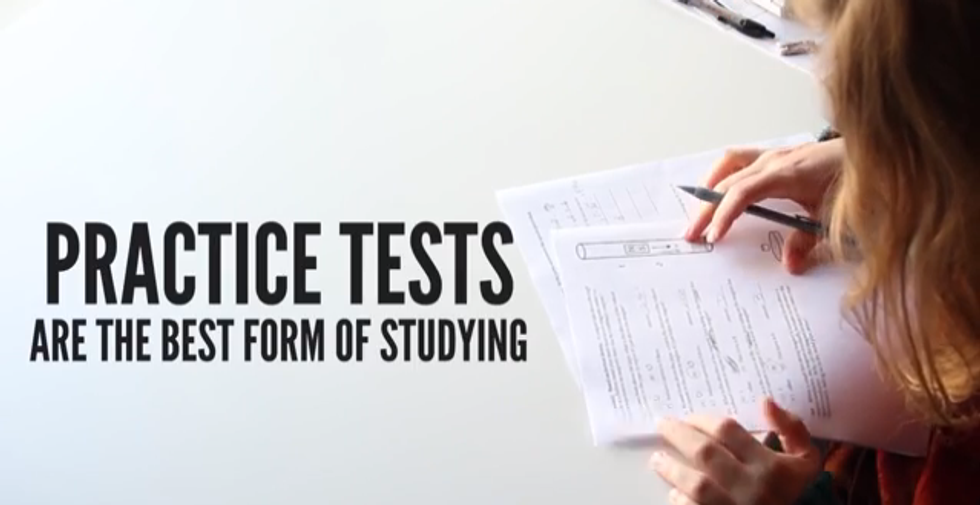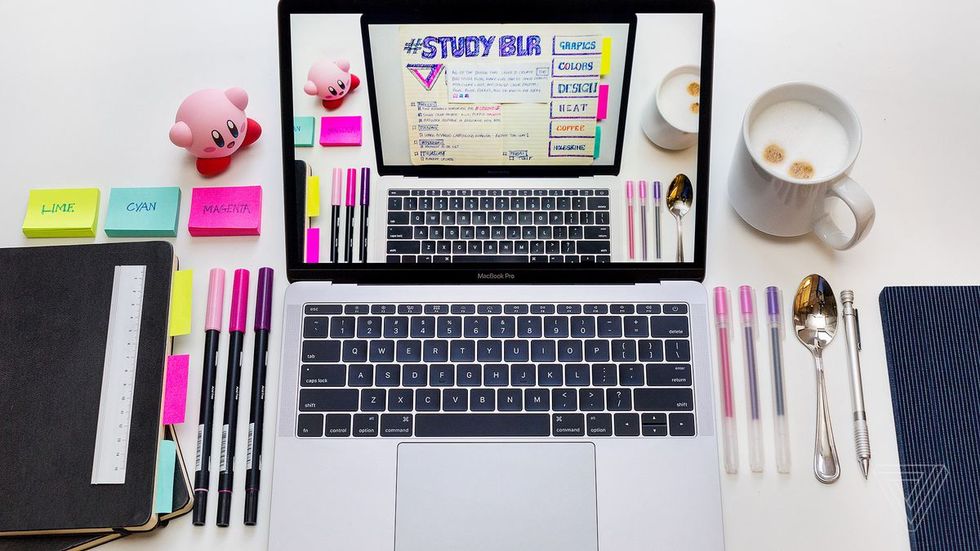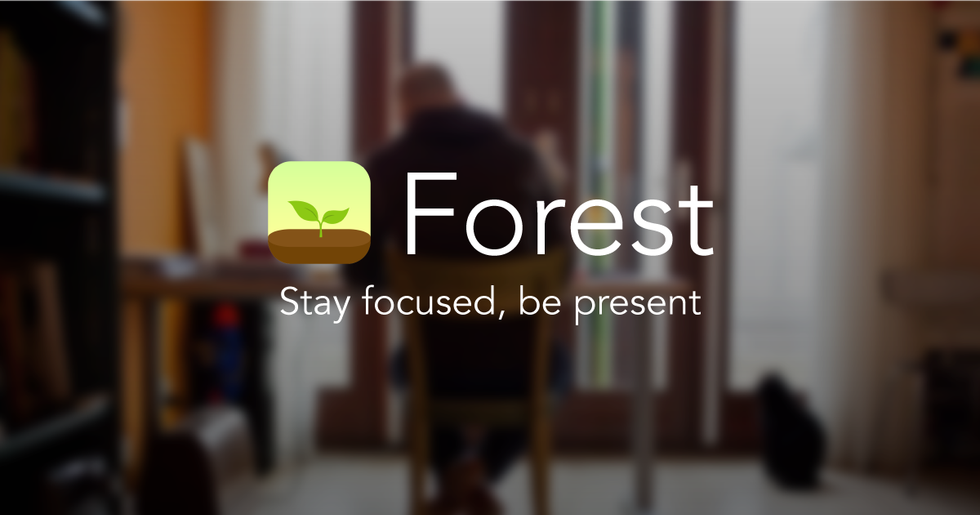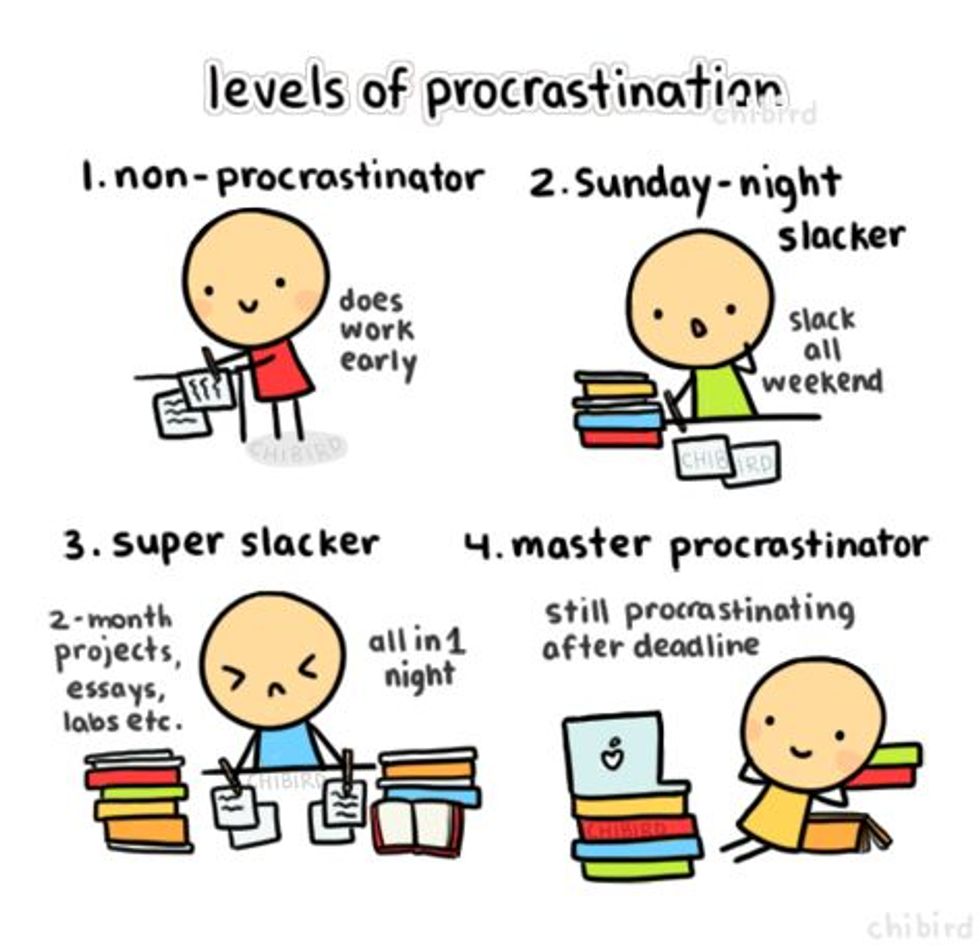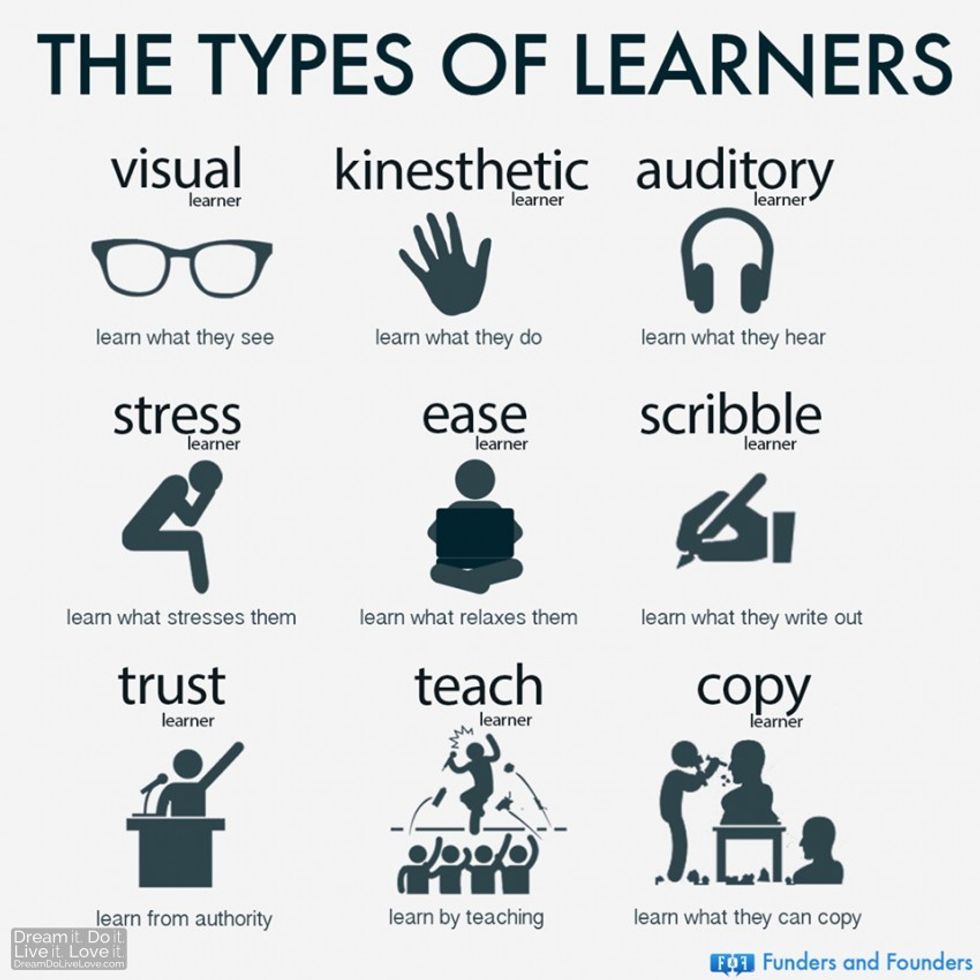With Fall exams shortly approaching, test anxiety might be settling in. No need to worry as I offer you the most effective study guide on how to ace school. This is a non-exhaustive list of how I've managed to get straight A's since high school.
FYI: We are only human. If you do not get an A+, that does NOT mean you are any less worthy or valuable than someone who did score an A+. You are NOT your grades! Life happens! There are many factors that influence our grades which may be out of our control. However, you do have control over the amount of effort you apply. It is up to you to take initiative over your educational career.
The Secret: STUDY!Yes, there is no magic pill or wave of wand magic to easily score an A. Doing well is well-earned when you truly try your best and put in the necessary amount of time and effort to succeed.
Most important: Syllabus!
Keep your syllabus in a folder as well as a digitally saved version. This will be your ticket to an A+ for each class that you are in. Since every class is graded and instructed differently, it is important to keep track of noteworthy dates and exams in a planner by following the syllabus weekly. Cross off any classes and assignments that have already been completed so you can move forward accordingly. Always save your syllabi as they may prove useful in the future, especially if you plan to enroll in graduate school. Now for the real guide to straight A's.
The 4 R's
1) Read!
There is a good reason professors assign textbooks. Use the textbook as your primary reference for obtaining the necessary information needed to learn the subject. As you read , highlight important text and definitions you need to remember. Do not skim, as that will only dim your knowledge and understanding. After finishing a chapter, make note of the most important highlights and summarize in your own words. I have found the digital copies (Amazon Kindle e-textbook versions) to be most helpful throughout my semesters in terms of price, portability, ease of highlighting, and overall accessibility with features such as text-to-speech narration (Audible), X-Ray for textbooks, built-in flashcards, pre-set highlights, and automatic definition lookup and in-book search. If you can afford the means to a physical textbook, please find whichever option works best for you.
2) Revise!
After reading, it is important to take revisions of all the content and highlights needed to properly absorb the information. Cognitive psychology research suggests that writing about what you have read increases reading comprehension, memory, and subject literacy. So if you really want to ace that exam, you will write up your study guide at least 1 week before the exam. Make sure to include questions about the material that will be covered in the exams.
3) Review!
After drafting up your study guide, test yourself! Cognitive psychology research also suggests self-testing boosts your memory recall instead of re-reading the material. Practice questions will further solidify your knowledge of the subject by utilizing your working memory. Quizlet is a great app to test yourself as it covers a wide variety of subjects with relevant and accurate pre-made flashcards.
4) Recite!
In academia, the ubiquitous phrase, " if you cannot teach it then you do not know it" still holds true. To really test your memory recall, teach what you have learned to a friend, family member, study peer, or digital audience. It may prove helpful to record yourself presenting the material either through video or voice memo.
Extra Study Tips
*Studyblr
Studyblr is an online Tumblr community of study-based blogs that encourage students to study. You can also find studyblr's on Pinterest or other apps. Make a studyblr to help keep you motivated!
*Focus
The key to good focus during a productive study session is proper study setting / location , tea to naturally improve concentration, and apps like Forest that prevent distraction. Usie a timer to set the duration of each study session to usefully divide your time so that you don't end up taking a break that lasts longer than you had planned. *cough cough procrastinators*
*Boost your Memory
Whether you remember best through the use of flashcards, playing music, aromas, making lists, and/or building a memory palace , always seek to find different study hacks that work best for you so you can better remember the information you will be tested on.
*Avoid Procrastination like the plague
The #1 downfall to your grades will most likely be procrastination, which is a form of self-sabotage. Start your work as soon as you can! Reward yourself afterward with all the activities you like to procrastinate with (ahem, Netflix). Study for exams at least a week beforehand. If you are procrastinating right now, watch this amazing Ted Talk about procrastination.
*Planner
Keep all To Do lists, assignments, exams, quizzes, and important due dates in a daily student planner . This is a little-known secret that has kept me organized throughout the hectic semesters.
*Know which type of learner you are
Discover which type of learner you: take a quiz here . If you are a visual learner, watch some Crash Course . Listening is the new reading with Audible on-the-go.
*Stay Healthy
You will lower your chances at straight A's if you don't establish a proper routine not just for study but also for your health. Studying right before bed increases memory consolidation. Exercising before an exam or study session increases blood flow to the brain thus improving cognitive function. Eat healthy foods like a champion who gets straight A's.
*Don't Stress! :)





